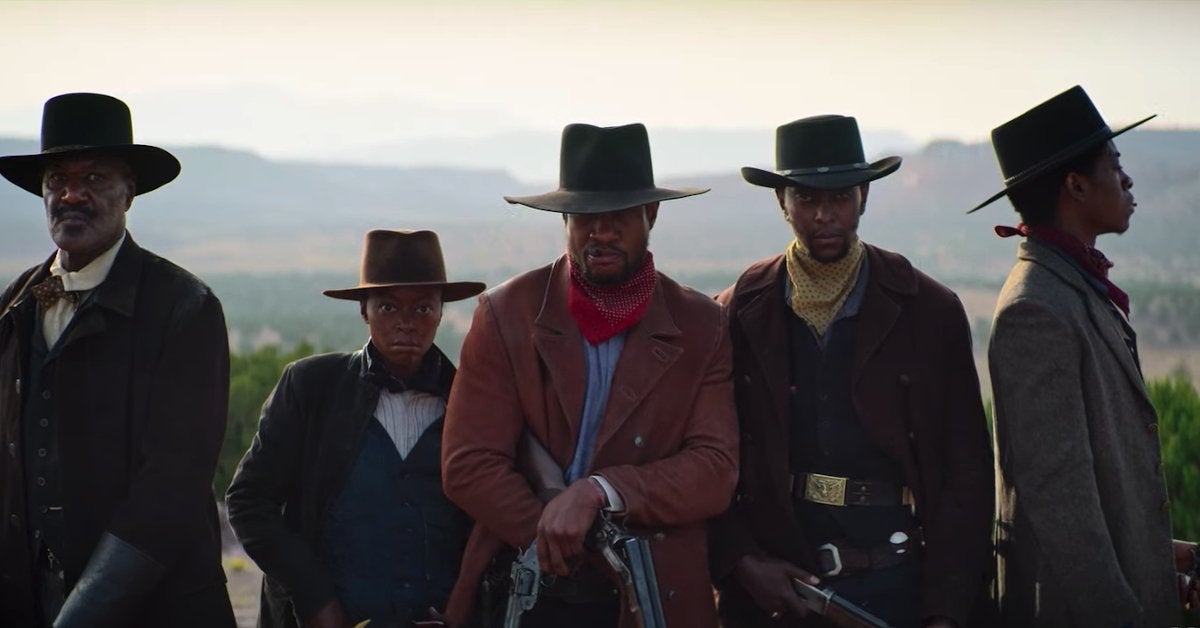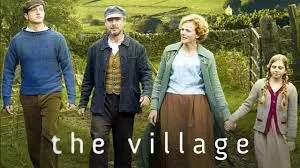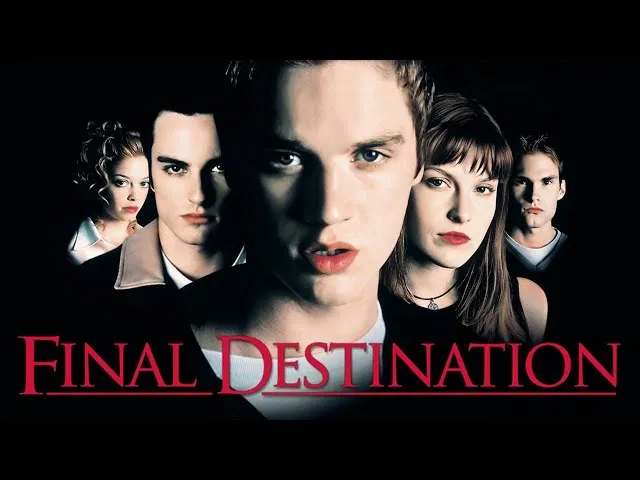“In a land of guns and blood, revenge is not a choice—it’s destiny.”
When Jeymes Samuel unleashed The Harder They Fall in 2021, he did more than deliver another Western—he tore the genre apart, painted it with fresh colors, and rewrote its rhythm with a thunderous beat. Infused with Black artistry, swagger, and an unflinching sense of style, the film was both a love letter to the Western and a defiance of its traditions. With its gun-smoked duels, its operatic revenge tale, and its pulsing soundtrack, it became one of the most striking reinventions of modern cinema.
The story is anchored by Nat Love (Jonathan Majors), a notorious outlaw whose life has been shaped by trauma. As a child, he watched his parents murdered in cold blood by Rufus Buck (Idris Elba), a man whose shadow looms large over his very existence. Years later, Nat assembles his gang for one purpose only: to settle the score. It is a classic tale of vengeance, yet the way the film stages it—like an operatic showdown carved into history—elevates it into myth.

Opposite him stands Rufus Buck, brought to life with chilling gravitas by Idris Elba. Far from being a one-dimensional villain, Buck embodies a ruthless power that is magnetic, terrifying, and strangely dignified. Around him orbit some of the most fascinating gunslingers in recent Western memory—Regina King’s steely Trudy Smith and LaKeith Stanfield’s icy Cherokee Bill, each of them burning with deadly charisma. Together, they form a rogues’ gallery that feels as legendary as it is dangerous.
What truly sets The Harder They Fall apart is its unapologetic style. Samuel paints the screen with bold hues, from the crimson of bloodied duels to the golden dust of sunlit streets. The violence is brutal but balletic, choreographed like a dance of death. Layered over this is a soundtrack that thunders with reggae, hip-hop, and soul—a sonic rebellion against the dusty silence of traditional Westerns. The result is a film that not only tells a story of vengeance but also reclaims a genre that rarely celebrated Black voices.

At its core, however, lies the humanity of its characters. Beneath the swagger and gunfire, Nat Love’s revenge is not merely about justice—it is about identity, legacy, and the unhealed scars of the past. The film’s climactic revelation reframes everything, turning vengeance into tragedy and rivalry into a haunting inheritance. In that moment, the myth of the Western collides with the truth of history, leaving echoes that linger long after the final shot is fired.
The Harder They Fall is not just a Western—it is a declaration, a reclamation, and a resurrection. It is cinema at its most alive, fusing blood, music, and myth into a singular vision. It reminds us that legends are not inherited from the past—they are rewritten with fire, rhythm, and defiance.
-1754896389-q80.webp)

-1749780241-q80.webp)
